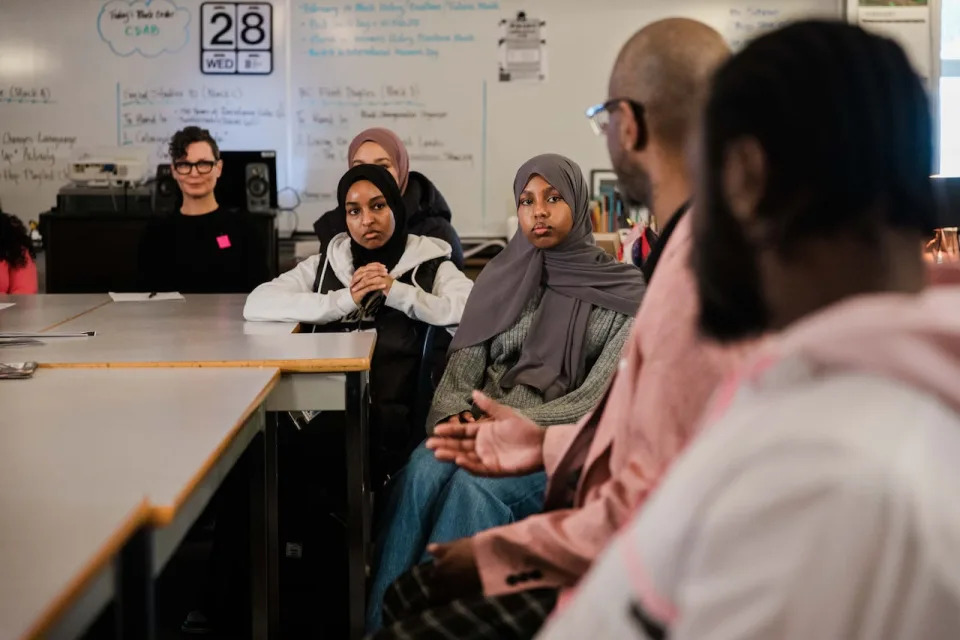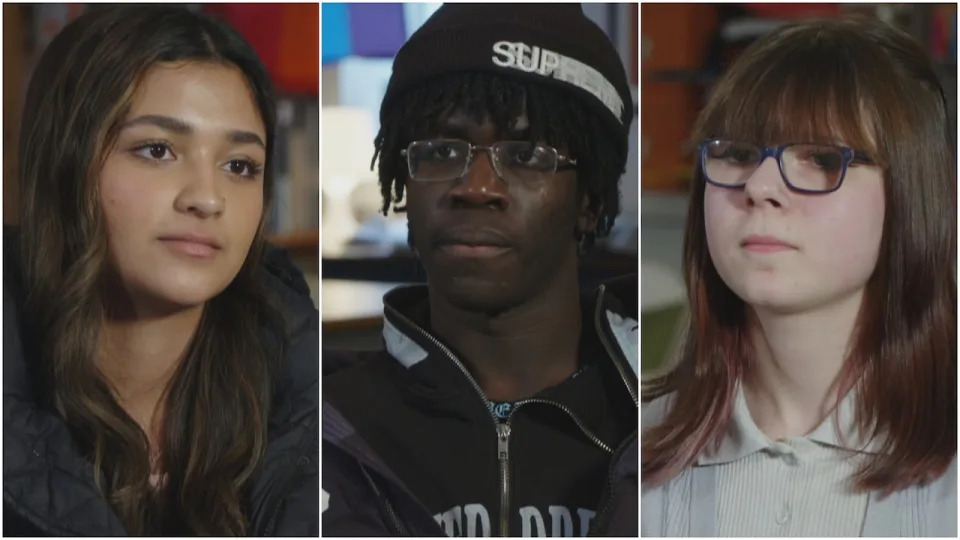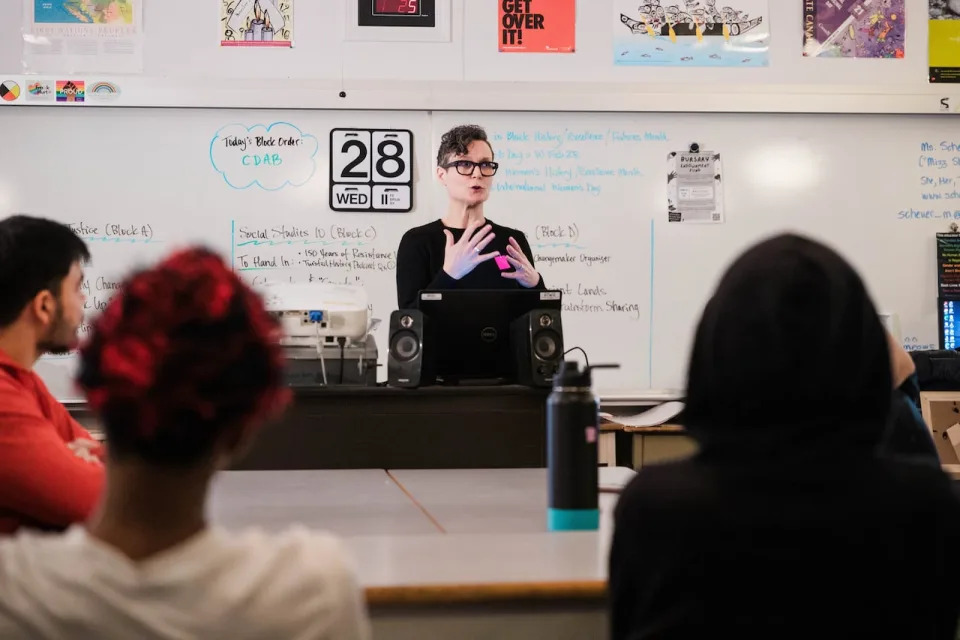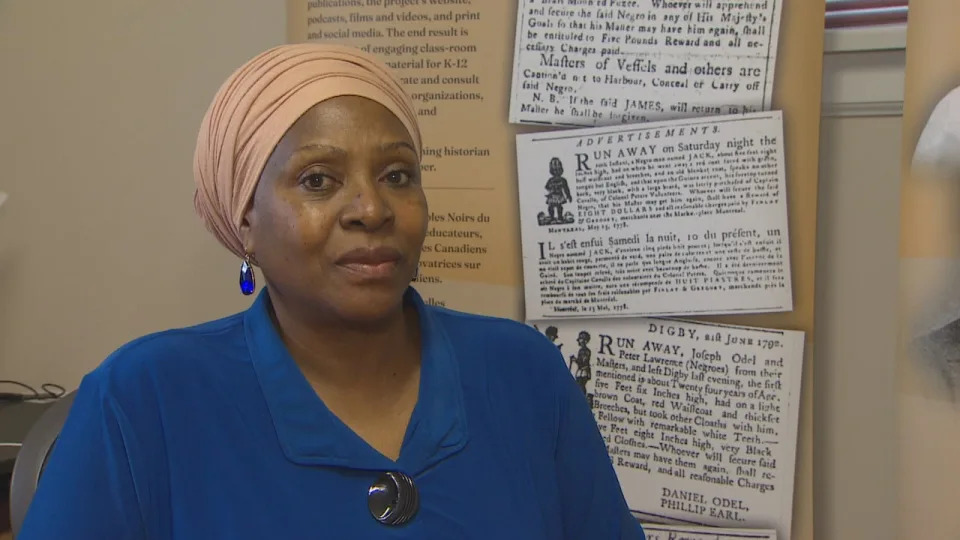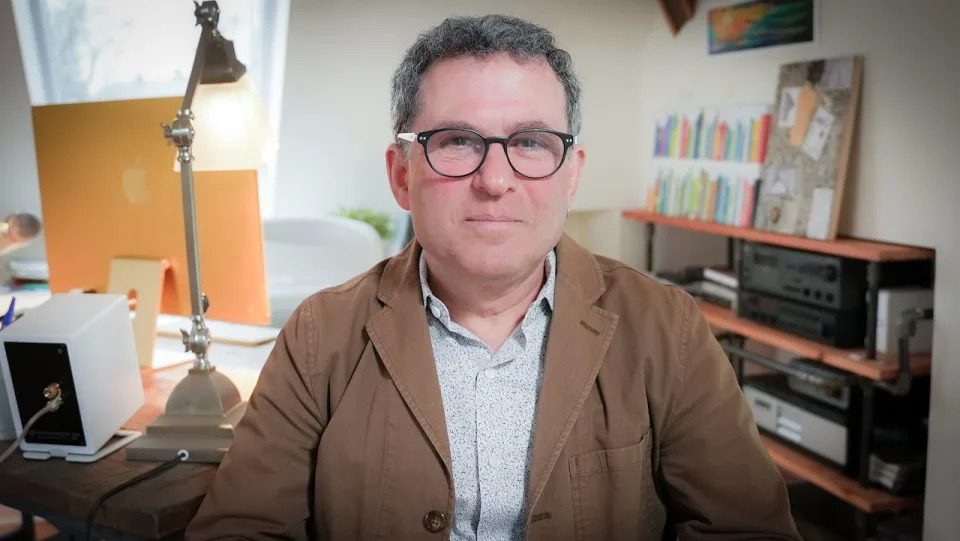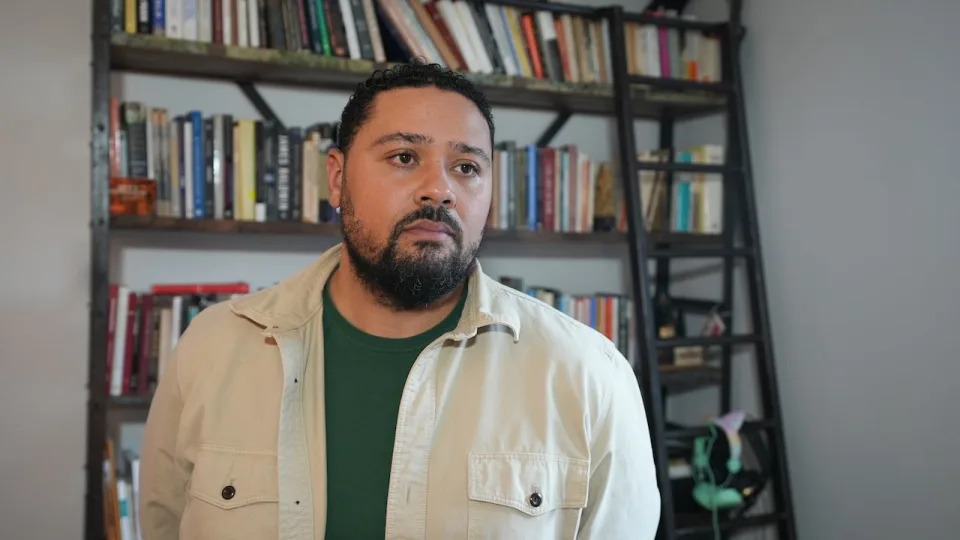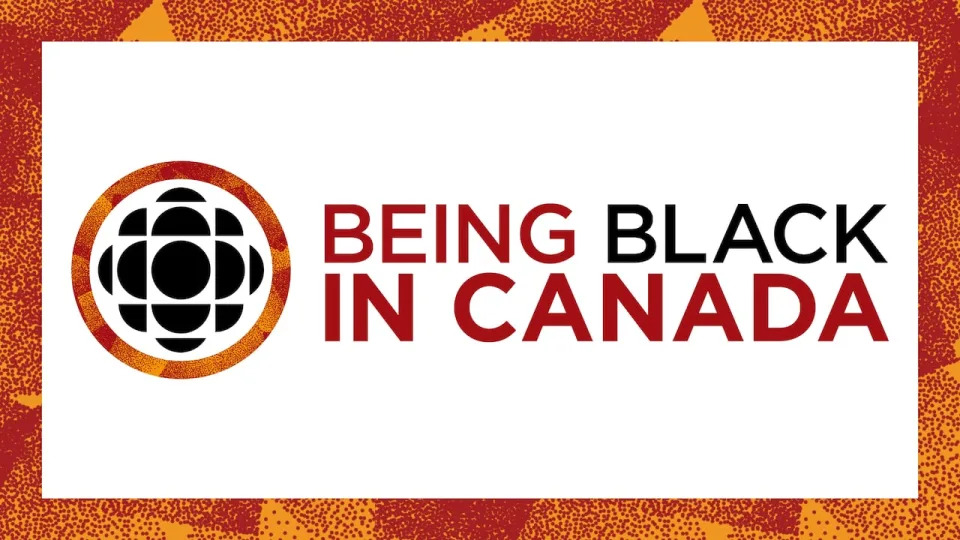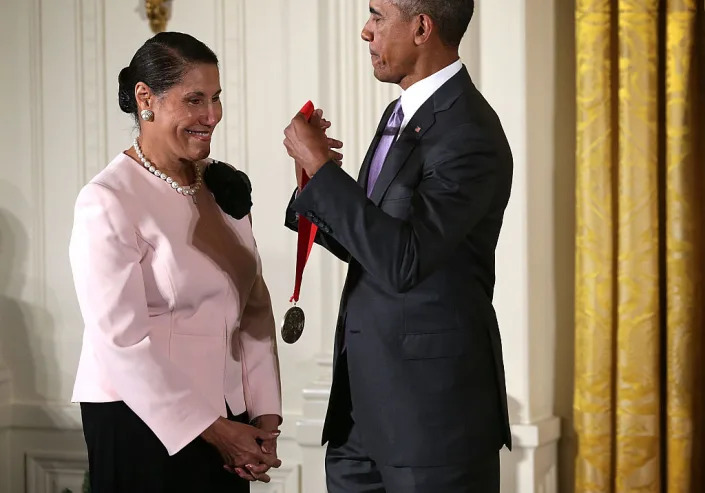Students fight for Black history courses, a more diverse curriculum in high schools
Many high school students are usually preoccupied with fitting in and keeping their heads above never-ending tests and due dates.
The students fighting for a more diverse lesson plan
But Machayla Randall, a high school senior in New Jersey, is more worried about making a difference in her school and beyond.
“There's definitely a lack of education of African American history throughout our school system,” she said. “In our history courses, the most you learn about African American history is during the month of February, which is Black History Month, and it's limited to the civil rights movement and that's pretty much it, unfortunately.”
© ABC VIDEOS
For Randall and her classmates at Cherry Hill High School East, change begins with a course correction in history.
“Right now … we're asking for a mandatory African American studies course at the high school level that encourages teaching of systematic racism,” she said.
The course is currently offered at both Cherry Hill high schools -- West and East -- only as an elective
.
© ABC Cherry Hill High School East senior Machayla Randall is leading the charge to bring a mandatory course on African American studies to her district.
As protests for social justice erupted across the nation last year following the death of George Floyd, many students faced their own moment of racial reckoning in the classroom.
Last summer, Randall and members of her school’s African American Culture Club formed what they called the Social Justice Committee.
“I was sad. Also, in disbelief, shock and, primarily, I felt isolated,” Randall said. “Eventually, those feelings kind of turned into action.”
The students organized a Juneteenth protest focused on education.
“We were definitely inspired by the rising action across the nation,” Randall said. “Once we saw even local activists start to take action as well, we just needed our voice and we just needed to push for what we wanted.”

© Machayla Randall Machayla Randall helped organize a Juneteenth protest, where she addressed a crowd.
Joseph Meloche, a Cherry Hill native, has been superintendent of the school district for six years. He spoke to a crowd at the protest, where Randall also made a speech.
“It was incredible what they were able to put together,” he said. “As the adults, we have to make sure that we are physically there for them. And sometimes, even if we are just standing alongside to make sure that they have the opportunity to speak, if I can lend my voice, my figure and my presence to that, then that certainly is my responsibility to do that.”

© ABC “We have to teach it. We have to talk about it,” Dr. Joseph Meloche said. “History through the lens of white eyes or white Americans cannot continue to be the dominant and singular piece through which we teach."
The predominantly white school district would be the first district in the state to make its African American studies course a requirement.
“We have to teach it. We have to talk about it,” Meloche said. “History through the lens of white eyes or white Americans cannot continue to be the dominant and singular piece through which we teach. And again, when we talk about folks of color, it can't just be five or six individuals that children hear about from elementary school through high school. It needs to be all of our history. Black history is our history.”
The director of curriculum, Farrah Mahan, recognizes the flaws in today’s history courses.
“We have to move beyond courses that really talk about how so many people of color were taken from their homes and from their countries and colonized,” Mahan said. “We start to look at our curriculum not through a Eurocentric perspective, but through a perspective that really highlighted Black and brown excellence. It's not OK to be sitting in a classroom and to never hear about yourself or your background… We want our students to feel like, ‘I belong here, I have a place here and I should be able to feel comfortable in the academic environment.’”
© ABC The director of curriculum, Dr. Farrah Mahan, recognizes the flaws in today’s history courses.
Mahan has worked closely with students, authors, local professors and universities to design a potential mandatory course in Black history for the district.
“Even though our teachers write the curriculum, we also are allowing a space for the students to give us their input,” Mahan said. “We're starting to talk about, ‘What are we learning about present day authors? What do our students know about Maya Angelou and the significance behind Malcolm X, not just Martin Luther King.’ We are asking the students, ‘Tell us what part of history would you really like to see brought to life in this course?’”
Randall says students are an integral part of that process.
“You can't really know what's best for your students unless you are willing to hear from them,” she said. “The students are the ones experiencing the culture at school, so I think it's really important that students have an opportunity to reflect their perspectives and their experiences and [for] their opinions to be valued.”
© ABC A mural of advocates for diversity at the Cherry Hill Alternative High School building at the Malberg Administration Building.
Some college students are also mobilizing to change whitewashed narratives in high school classrooms.
Stanford University sophomores Jasmine Nguyen and Katelin Zhou launched the campaign “Diversify Our Narrative” in response to the Black Lives Matter movement, as well as their personal experiences in high school.
“Growing up, it was a bit difficult to see that I wasn't really represented in the classroom or in the media,” Zhou said. “Or, if I was represented and my people were represented, it was often portrayed in a more one-dimensional or stereotypical manner. And so, I think it can be difficult, [for] any person of color when they're growing up and they face similar obstacles where they have to face microaggressions or even systemic racism, when it comes to Black and brown folks… To see this happening all the time, and not really seeing yourself and your people portrayed in a manner that really reflects your rich cultural history in a multidimensional way.”
Nguyen and Zhou created a student-led campaign and organized with students across the country to help them form their own chapters within their school districts.
Their original mission was to get one book by and about a person of color added to the curriculum for every grade, in every school.
“We also have other chapters that have started their own petitions, [and they] are actually advocating for things like... getting police officers off campus,” Nguyen said. “It originally started with this one book campaign, but [has] now kind of spiraled into this much larger idea of racial justice and educational equity on a larger level.”
Their campaign has now reached over 800 school districts across the nation with more than 5,000 organizers participating. But as with any change, there has been pushback.
“There definitely has been backlash in terms of folks interpreting the movement as against white authors,” Nguyen said. “[It’s] really important to highlight [that] we're not so much saying that we don't want these works of literature. I like to see it not so much as subtracting from [a] curriculum, [but rather] as expanding our perspectives and our horizons.”
“We want to diversify the books that we're reading, not necessarily eliminate or trample over others,” Zhou added. “I think a lot of the reason why there is backlash is because a lot of people are uncomfortable when you try to change the status quo.”

© ABC Stanford University sophomores Jasmine Nguyen and Katelin Zhou launched the campaign “Diversify Our Narrative” in response to the Black Lives Matter movement
That resistance to change is something Maria Montessori Academy, a predominantly white Utah school, is familiar with.
The charter school is no longer allowing parents to opt their children out of its Black History Month curriculum after coming under fire for initially giving families the option to do so. A few parents had requested the exemption from the instruction but later withdrew their requests.
The school’s opt-out policy began receiving public attention after the Academy’s director, Micah Hirokawa, wrote on the school’s Facebook page that he had “reluctantly” issued a letter that said families would be allowed “to exercise their civil rights to not participate in Black History Month at the school.” The post has since been deleted.
Hirokawa, who is of Asian descent, said the parents’ decision goes against his personal beliefs, according to the Standard-Examiner.
“I personally see a lot of value in teaching our children about the mistreatment, challenges and obstacles that people of color in our nation have had to endure and what we can do today to ensure that such wrongs don’t continue,” he said.
The fight to diversify education in the classroom has persisted for generations.
Between 1965 and 1972, African American students from nearly 1,000 schools across the country formed the Black Campus Movement, which demanded that Black studies be implemented in schools, that progressive Black universities be established and that a diverse system of higher education be built.
“If we look throughout history, it almost always comes from the young people, doesn't it?” Becky Pringle, president of the National Education Association, said. “That in part is because they still are so very idealistic and determined. They come from that place of aspirational thinking and hope and they are not deterred by what has been.
”MORE: Black scuba divers document slave shipwrecks forgotten for generations
In Cherry Hill, the mandatory African American studies course is on the verge of becoming a reality. The proposal will go before the city's Board of Education on Feb. 23, and may be passed in time for the end of Black History Month.
For Mahan, it's about making a difference that will extend far beyond this school year © ABC For Randall and her classmates at the Cherry Hill High School East, change begins with a “course correction” in history.
“It's really about building our body of work and building a legacy for students,” Mahan said. “I'm hoping that it's something that does not just go away, that there are always advocates who are pushing the need for a course of this nature over the years.”
Meloche urged adults to listen to the feedback from the students.
© ABC Cherry Hill High School East senior Machayla Randall is leading the charge to bring a mandatory course on African American studies to her district.
“The only way that society has grown throughout the last few thousand years is that communities come together and support one another,” Meloche said. “This is not an individual endeavor.”
“It's really important to understand more than one perspective, and that is why it's really important for us to encourage black education,” Randall said. “I hope it has a great effect on the younger generations. Ideally, I'm hoping for younger generations to have better experiences than us."




